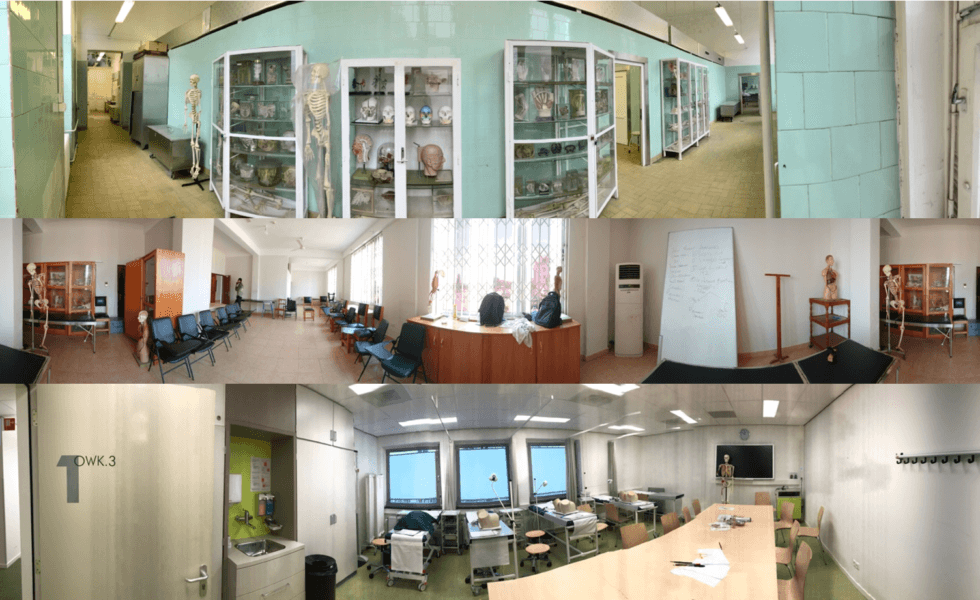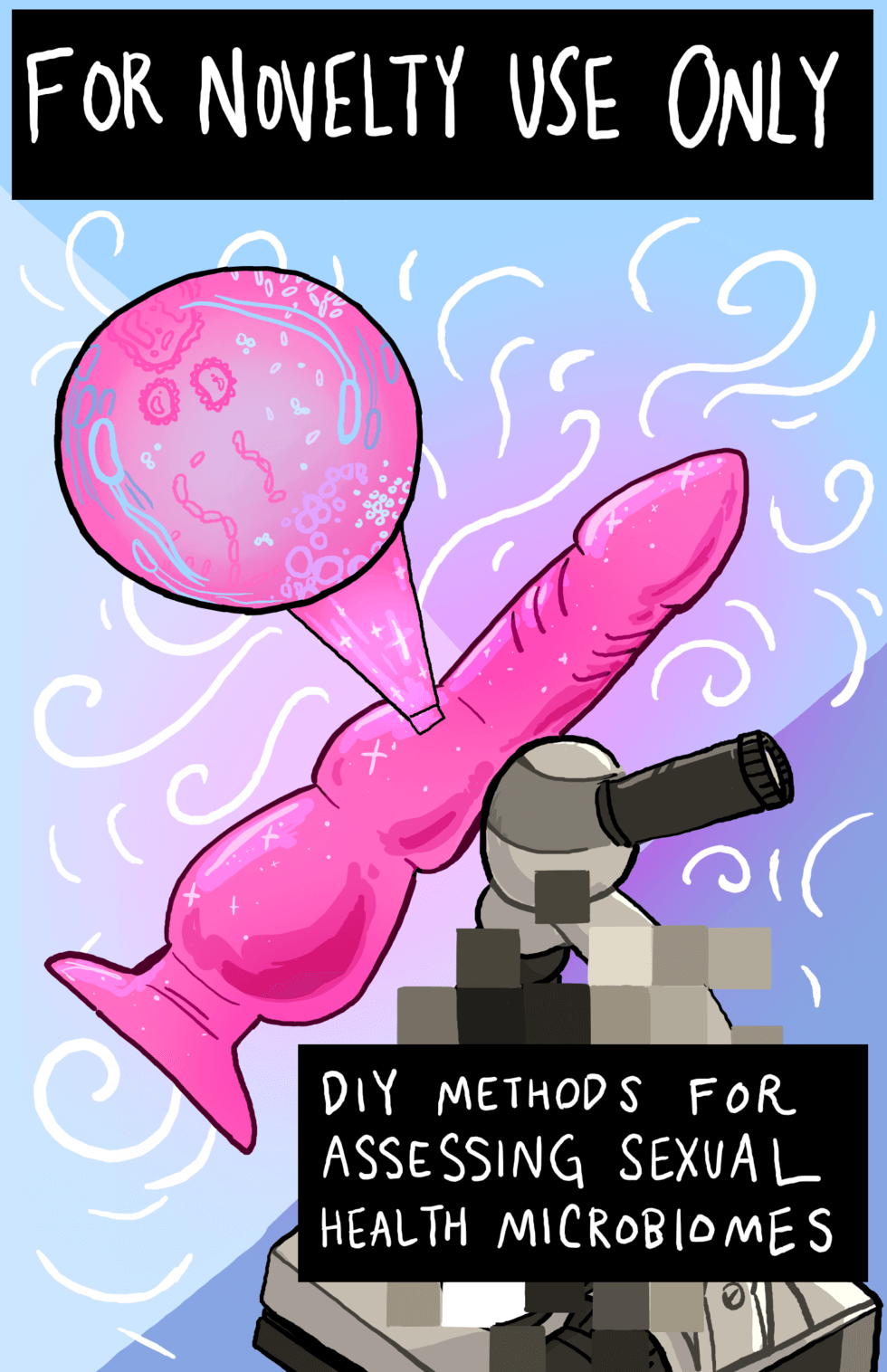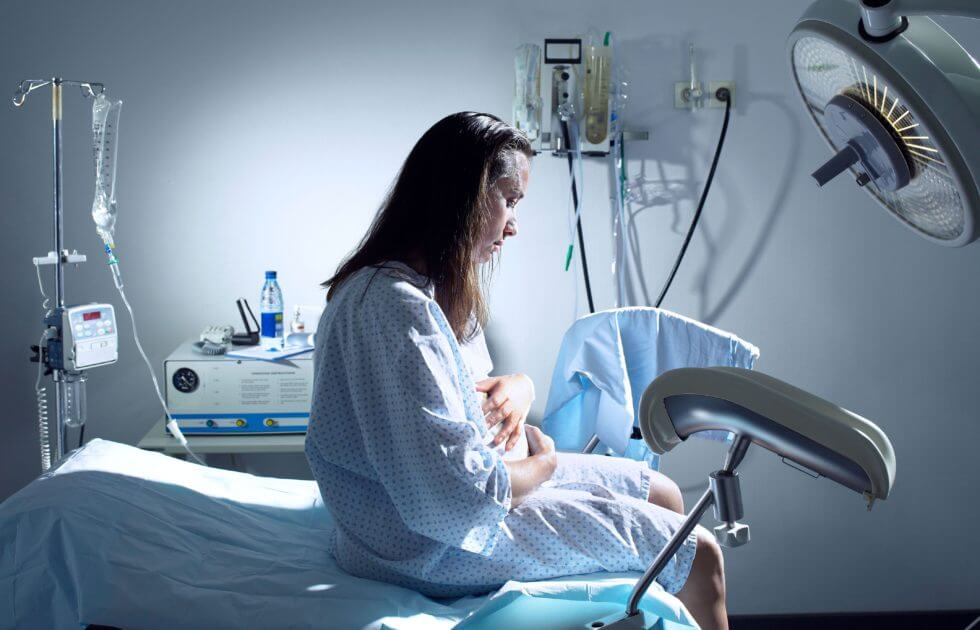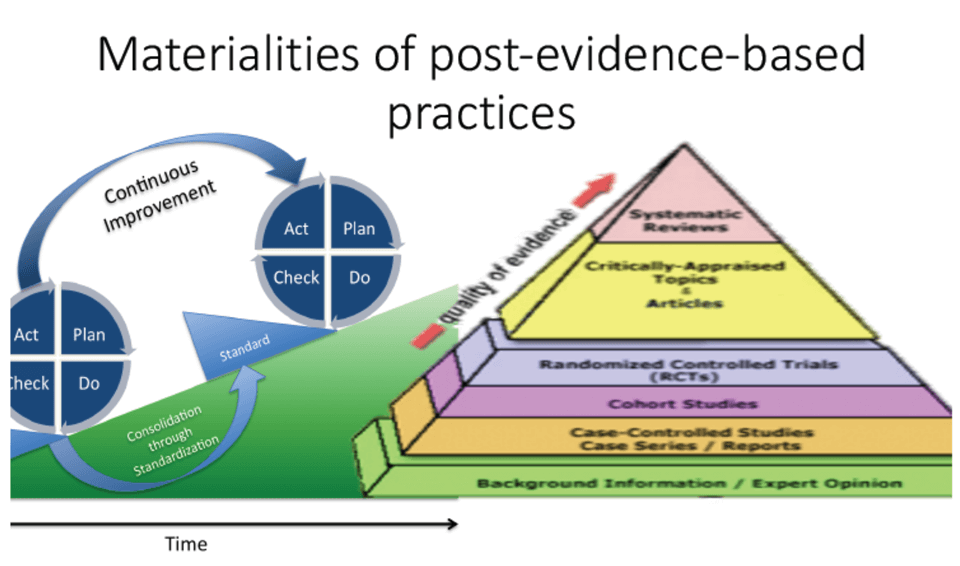

Rachel Vaden Allison, Anna Harris, John Nott, and Andrea Wojcik
Maastricht University
This Making and Doing project plays with the notion of ’simulation‘ and ’comparison‘, by offering a sensorially-immersive (online) installation that attends to the affective atmospheres, materials, and multisensory and embodied knowledge entailed in the fieldsites and practices of our research. We are three ethnographers and one historian on the European Research Council funded project ’Making Clinical Sense‘, which investigates the materiality of medical education in Ghana, Hungary, and the Netherlands. In all three sites, the simulation of patient bodies was used, in part, to help students‘ bodies become more knowledgeable.

Hazelle Lerum, Rensselaer Polytechnic Institute; Runa Archer, Rensselaer Polytechnic Institute; Xen Riccardi, Rensselaer Polytechnic Institute
For Novelty Use Only is a DIY biopunk project that aims to inform the public about the dangers of the unregulated toxic sex toy industry. Our team of artists, engineers, and STS scholars have collaborated to create PDA Fabric, a fungal, algal, and bacterial medium made of three simple ingredients that can be used to identify the microbiotic inhabitants of a sex toy using only the naked eye. This citizen science project and its attendant Sexy Microbiotic Field Guide are accessible online and in print through our zine of the same name.

Lenka Formánková – Institute of Sociology, Czech Academy of Sciences, Eva Hejzlarová – Faculty of Social Scicence, Charles University
This Making and Doing project confronts the audience with the Czech debate on birth-giving combining the materials of the medical experts with the audio version of narratives we have collected through biographical-narrative interviews with women giving birth at home and in the hospital.

Morten Sager, Department of Philosophy, Linguistics and Theory of Science; Isabella Pistone, Department for Philosophy, Linguistics and Theory of Science, University of Gothenburg; Allan Lidström, Department for Philosophy, Linguistics and Theory of Science, University of Gothenburg; Teun Zuiderent-Jerak, Athena Institute, VU Amsterdam; Thomas Schneider, Bräcke Diakoni and Jönköping University; Lena Eriksson, Department for Philosophy, Linguistics and Theory of Science, University of Gothenburg; Ingemar Bohlin, University of Gothenburg
Together with changes in governance related to New Public Management, evidence-based practice (EBP) has amounted to a paradigm shift in the Swedish welfare sector and elsewhere concerning the management, monitoring and measurements of operations in health care, education and social care.

Mike Grijseels, Athena Institute, VU University, Amsterdam; Teun Zuiderent-Jerak, Athena Institute, VU Amsterdam; Barbara Regeer
How can new human / non-human configurations contribute to the transformation of employment? To explore this question, 7 pilots for innovative technologies try to produce inclusion of people with disabilities. Pilots range from real time speech-to-text transcription technology for deaf employees to an electronic and data-sensed hedge trimmer for people with mental disabilities.
